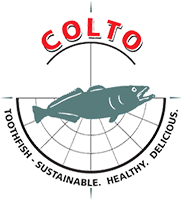The Marine Stewardship Council (MSC) has announed the Austral Fisheries’ and Australian Longline’s Heard Island and McDonald Islands (HIMI) toothfish fishery has entered full assessment for MSC certification.
To be conducted by independent certification body Scientific Certification Systems (SCS), the assessment will evaluate the Southern Ocean fishery against the MSC standard for well-managed and sustainable fisheries, which examines the sustainability of the fish stock, the environmental impact of the fishing activities and the management and governance systems that are in place.
About the HIMI toothfish fishery
The assessment covers 3 vessels (2 longliners and 1 trawler), which are responsible for a total annual catch of more than 2,500 metric tonnes of toothfish using demersal trawl and long-line methods. This catch is sold predominantly sold to the US, Japanese and Chinese markets.
Austral Fisheries General Manager for Environment and Policy, Martin Exel, says “we are proud to have our toothfish fishery independently reviewed for MSC certification. We believe this is a world leading fishery in its management approaches and successes.”
“Our industry has a history of collaboration and cooperation between conservation, science, management and industry groups to ensure sustainable management practices. In the past 14 years we’ve implemented one of the world’s largest no take Marine Protected Areas in our EEZ; eliminated illegal fishing of toothfish from Australian waters; undertaken annual research surveys using commercial boats and have scientifically determined and reviewed precautionary allowable catch levels to ensure sustainability of our toothfish stocks,” Exel explains.
What the MSC says
Patrick Caleo, Country Manager for MSC ANZ, welcomes the fishery into the assessment process stating “the seafood market in Australia and across the globe is expanding supplies of MSC certified products, which has now reached more than 6,000 and, if successful in gaining certification, Austral Fisheries’ and Australian Longline’s HIMI toothfish fishery will be able to use the MSC ecolabel on their toothfish products, and should see high commercial demand.”
“I hope that their support of the MSC program will encourage other fisheries interested in demonstrating their sustainability using a credible, science-based, third-party assessment to come forward to seek MSC certification,” he adds.
This is the Australian operators’ second fishery to undergo MSC assessment, with the Australian HIMI mackerel icefish fishery successfully gaining MSC certification in 2006.

